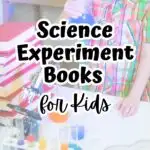Science experiment books for kids are a gateway to thrilling discoveries and endless exploration. These engaging resources not only capture the imagination of young minds but also emphasize the importance of hands-on learning.
Plus, these books provide easy gift ideas for curious STEM-loving kids, encouraging them to tinker, question, and explore the world around them. By making science fun and accessible, these resources can inspire a lifelong passion for learning and discovery.
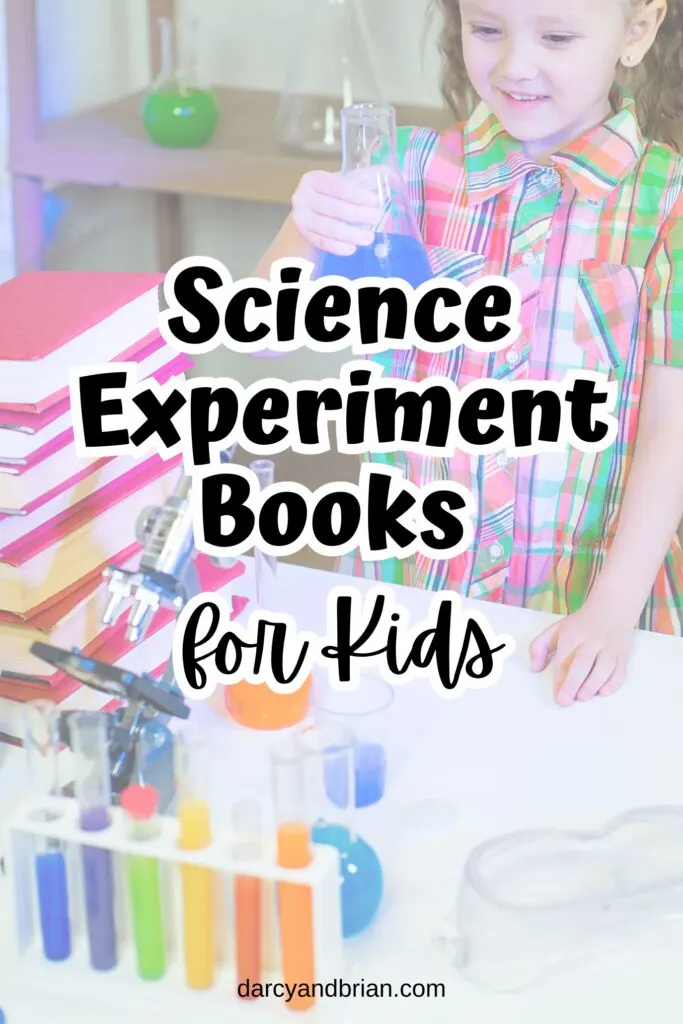
Kids are naturally drawn to science because it allows them to explore and make sense of the world around them.
Their innate curiosity fuels a desire to ask questions, conduct experiments, and discover how things work.
Young children possess an inherent sense of wonder, constantly observing, touching, and experimenting, which makes them natural scientists.
This exploratory behavior promotes creativity and critical thinking as they learn through trial and error, turning everyday experiences into scientific adventures.
By fostering this curiosity, parents and educators can nurture a love for science that lasts a lifetime.
Learning Benefits of Doing Science Experiments with Kids
Doing science experiments with kids enhances their understanding of scientific concepts and ignites their interest in exploring the world of science.
Engaging in hands-on activities helps solidify knowledge, allowing children to see theories in action. It’s imperative to get kids interested in science from a young age, as this foundational enthusiasm can lead to lifelong learning.
Furthermore, encouraging girls to participate in science activities is crucial for breaking down gender barriers and increasing diversity in STEM fields.
Even watching demonstrations can provide valuable learning experiences, piquing curiosity and facilitating discussions about scientific phenomena.
This post contains affiliate links. As an Amazon Associate and a participant in other affiliate programs, we earn a commission on qualifying purchases.
Carson MicroBrite Plus 60x-120x LED Lighted Pocket Microscope, Portable Plastic Graduated Cylinders and Beakers
Plastic Graduated Cylinders and Beakers Starter Science Measuring Flask Set
Starter Science Measuring Flask Set United Scientific™ Chemical Splash Safety Goggles for Children
United Scientific™ Chemical Splash Safety Goggles for Children Certified Kids Safety glasses
Certified Kids Safety glasses Starter Science Test Tube Set
Starter Science Test Tube Set
Enhances Critical Thinking Skills
Science experiments are essential for kids to develop critical thinking skills. When conducting experiments, children are encouraged to ask why things happen and how variables affect outcomes.
This curiosity leads them to make predictions based on their observations and learn to form a hypothesis.
After the experiment, analyzing results helps kids evaluate their predictions, understand the link between their actions and outcomes, and adjust their thinking.
This process deepens their grasp of scientific principles and equips them with vital problem-solving skills applicable in other areas.
Promotes Hands-On Learning
Experiential learning is essential as it allows children to engage directly with the material and concepts they are studying, turning abstract theories into tangible experiences.
Children participating in hands-on activities are more likely to retain information by connecting new knowledge to real-world applications.
This interactive approach enhances memory retention and promotes a more profound understanding as learners build their knowledge through exploration and practice.
By fostering a dynamic learning environment, experiential learning encourages students to participate actively in their education.
Encourages Curiosity and Exploration
These hands-on activities encourage kids to investigate the unknown by letting them explore their questions and test their theories.
Their excitement grows as they see how different materials react or conditions influence outcomes, prompting even more questions.
This intrinsic motivation fuels a lifelong enthusiasm for learning as they seek answers through observation and experimentation.
Builds Problem-Solving Abilities
Conducting science experiments is a great way for kids to learn essential problem-solving skills.
When faced with unexpected results or challenges, children must analyze what went wrong and adjust their approach.
This process encourages them to think critically, consider alternative methods, and develop strategies to overcome obstacles.
As they navigate these challenges, kids build resilience and confidence in tackling complex problems—skills beneficial in academics and everyday life.
By viewing mistakes as learning opportunities, they foster a positive attitude toward inquiry and experimentation, vital traits for future scientists and innovators.
Strengthens Understanding of Scientific Concepts
The practical application of scientific theories turns abstract concepts into relatable experiences that children can easily grasp.
When kids engage in experiments, they see firsthand how real-world principles like gravity, chemical reactions, and energy transfer work.
For example, building a simple circuit helps them understand how electricity flows, while mixing vinegar and baking soda demonstrates an acid-base reaction.
These hands-on experiences connect theoretical knowledge to everyday situations, making learning more relevant and memorable.
By linking concepts to tangible outcomes, children develop a deeper appreciation for science, laying a solid foundation for future learning.
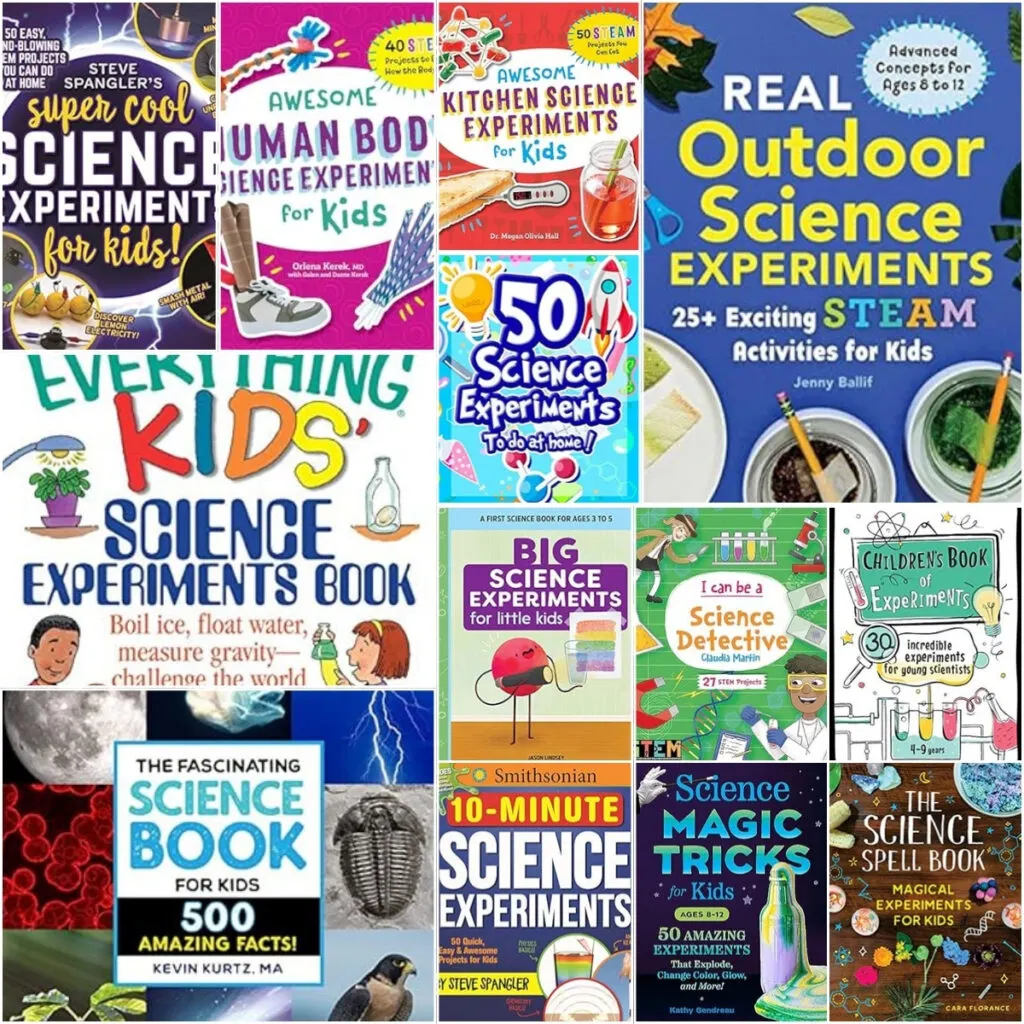
How to Choose the Best Science Experiment Books
Choosing the right science experiment books is essential for fostering a child’s interest in science and ensuring successful learning experiences.
Selecting books suitable for the child’s age and comprehension level is important, ensuring the content is engaging and accessible.
Look for books offering diverse experiments spanning various scientific disciplines, such as biology, chemistry, and physics, to provide well-rounded exposure to different concepts.
Clear, step-by-step instructions and accompanying illustrations are crucial for helping children understand and follow the procedures effectively.
Also, please prioritize safety by making sure that the experiments can be conducted with readily available materials, making it easy for parents and educators to facilitate hands-on learning without unnecessary complications.
By carefully selecting these resources, you can create an enriching environment that nurtures curiosity and encourages scientific exploration.
Tips for Conducting Experiments at Home
Preparing experiments at home is essential for a seamless and enjoyable experience.
Gather Materials in Advance: Create a comprehensive checklist of all necessary items for your experiment. This proactive step will help avoid interruptions once you start.
Establish a Safe Experiment Space: Designate a specific area that is both safe and easy to clean. This minimizes the risk of accidents and allows for a quick clean-up after the experiment.
Supervise and Guide: Adult supervision is required, especially for younger children. It ensures their safety and offers support when necessary.
Encourage Questions and Discussion: Use this opportunity to talk with your children about their observations and encourage them to think critically about what they see.
Discussing the underlying scientific principles enhances their understanding and sparks their curiosity throughout the process.
4M Clean Water Science NATIONAL GEOGRAPHIC Amazing Chemistry Set
NATIONAL GEOGRAPHIC Amazing Chemistry Set Steve Spangler Science Extreme Geyser Tube – Mentos & Soda Lab Experiment
Steve Spangler Science Extreme Geyser Tube – Mentos & Soda Lab Experiment NATIONAL GEOGRAPHIC Science Magic Kit
NATIONAL GEOGRAPHIC Science Magic Kit Doctor Jupiter My First Science Kit for Kids
Doctor Jupiter My First Science Kit for Kids NATIONAL GEOGRAPHIC Microscope for Kids
NATIONAL GEOGRAPHIC Microscope for Kids
Easy Science Activities for Kids
Exploring science through hands-on activities can be a delightful and educational experience for kids.
The following list of easy science activities is designed to engage young minds, spark their curiosity, and inspire a passion for discovery.
Each activity offers simple instructions and requires minimal materials, making it accessible for parents and educators to implement at home or in the classroom.
- Melting Rainbow Preschool Science Experiment
- Ocean Science Activities
- Balloon Air Pressure Experiment
- Bird Science Activities for Preschoolers
- Unicorn Density Tower Science Experiment for Kids
These experiments reinforce important scientific concepts and encourage children to think creatively and explore the world around them.
Fun Science Experiment Books for Kids
If you want a fun way to engage your child in science, consider a science experiment book! These books are full of exciting, hands-on activities that spark curiosity and a love for discovery. Each experiment is safe, educational, and entertaining.

Awesome Science Experiments for Kids
Take learning to the next level with this book of fun and educational experiments, where kids will have a blast while learning about science.
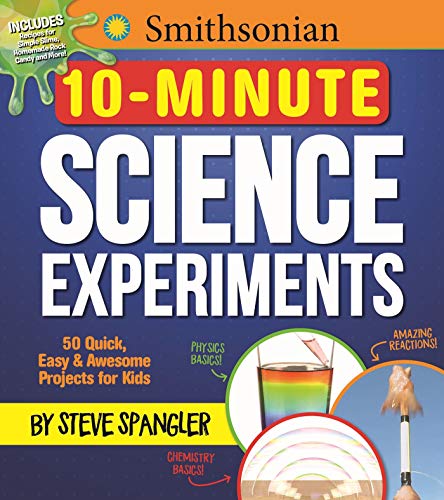
Smithsonian 10-Minute Science Experiments
Satisfy children's curiosity with 50+ easy, fast, safe, and fun experiments from the Smithsonian, perfect for busy families to enjoy together.

I Can Be a Science Detective
Young readers are encouraged to use their observation and critical thinking skills while exploring science through this interactive book of experiments.

Awesome Kitchen Science Experiments for Kids
Kids can learn about the science behind everyday items in their kitchen and conduct experiments with simple ingredients found at home.

101 Great Science Experiments: A Step-by-Step Guide
This comprehensive guide includes 101 hands-on experiments that cover a wide range of scientific topics, perfect for kids who are eager to learn more.

The Everything Kids' Science Experiments Book
Young scientists are invited to recreate dozens of mind-blowing, kid-tested science experiments using a few household items.

Awesome Physics Experiments for Kids: 40 Fun Science Projects and Why They Work
Transform your living room into a STEAM lab with 40 fun, hands-on physics experiments using everyday materials.

The Fascinating Science Book for Kids: 500 Amazing Facts!
This book provides 500 intriguing science facts about various topics like dinosaurs, dolphins, and weather, featuring full-color pictures on every page.

Awesome Human Body Science Experiments for Kids
Get kids thinking like a scientist as they explore the human body through hands-on experiments and activities that bring learning to life.

Science Experiments for Kids Ages 5 to 9
Discover 101 FUN science experiments to inspire curiosity and creativity in young minds, blending learning with entertainment.

Science Magic Tricks for Kids
Learn the secrets behind popular magic tricks and illusions while exploring scientific principles in this engaging book for kids.

Steve Spangler's Super-Cool Science Experiments for Kids
Offering fun science activities and projects using common household items, this guide reveals the mysteries of the universe with exciting effects.

Real Chemistry Experiments: 40 Exciting STEAM Activities for Kids
Enhance problem-solving and innovation with this book of fun chemistry experiments using household items, fostering critical thinking, curiosity, and a love for science
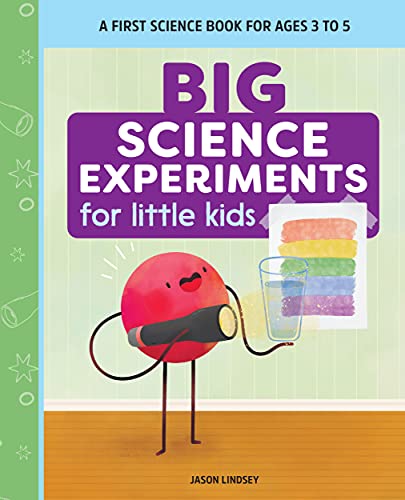
Big Science Experiments for Little Kids
Perfect for young children, this book offers easy and exciting experiments to introduce basic scientific concepts in a fun, interactive way.

Brain Games STEM - Outdoor Science Experiments
Take learning outdoors with 50+ hands-on science experiments that explore nature and the world around us, while sparking creativity and problem-solving skills.

50 Science Experiments To Do At Home
This book offers a variety of science experiments that can be done at home, providing hours of educational fun for children and their families.

Children's Book of 30 Incredible Experiments
Explore endless fun with 30 experiment cards for kids aged 4-9, featuring funny illustrations, simple instructions, and scientific explanations.

The Science Spell Book: 30 Enchanting Experiments
A book with 30 exciting experiments to unleash the magic of science, designed to inspire curiosity and wonder and help children learn.

Real Outdoor Science Experiments
Bring science to life with outdoor experiments using natural items, promoting critical thinking and a love for the outdoors.
Engaging kids in science experiments offers many benefits, including developing problem-solving skills, a strengthened understanding of scientific concepts, and fostering curiosity and resilience.
These hands-on activities not only make science fun and accessible but also lay the groundwork for future educational pursuits.
We encourage you to explore the recommended science experiment books that will inspire and guide you and your children in this exciting journey of discovery.
We’d love to hear about your experiences—please share your favorite science experiment books or any memorable activities in the comments below!

Darcy is the founder of “Life With Darcy and Brian,” where she combines her love for education, board games, and crafting to create engaging learning experiences for kids. Her creative projects and writing have been featured in outlets like The Toy Insider, CafeMom, Mom.com, Parents.com, Country Living, and The Pioneer Woman.

